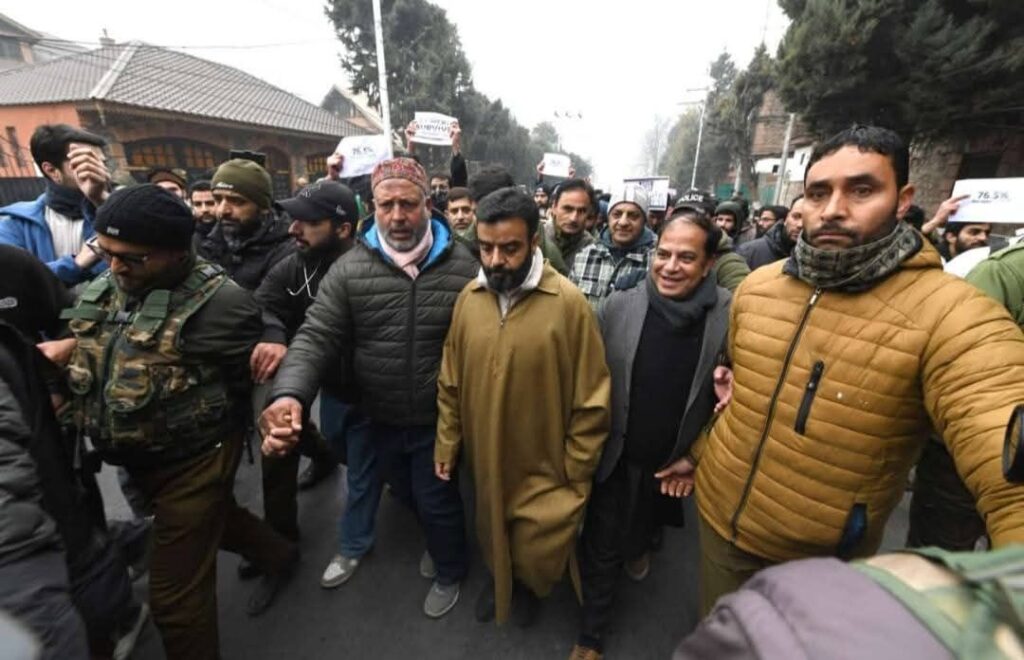
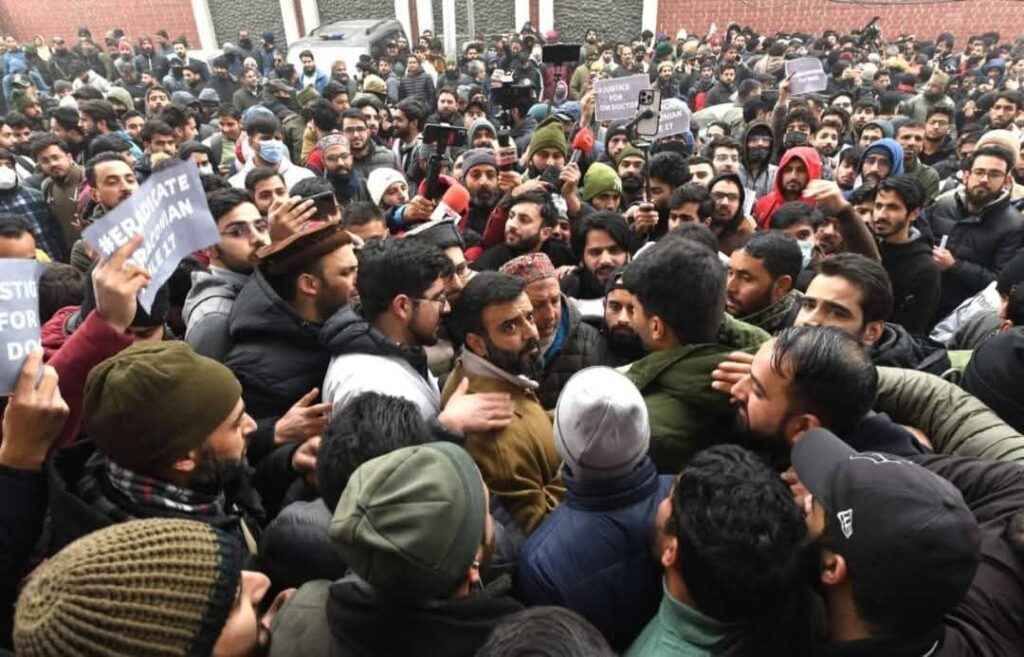
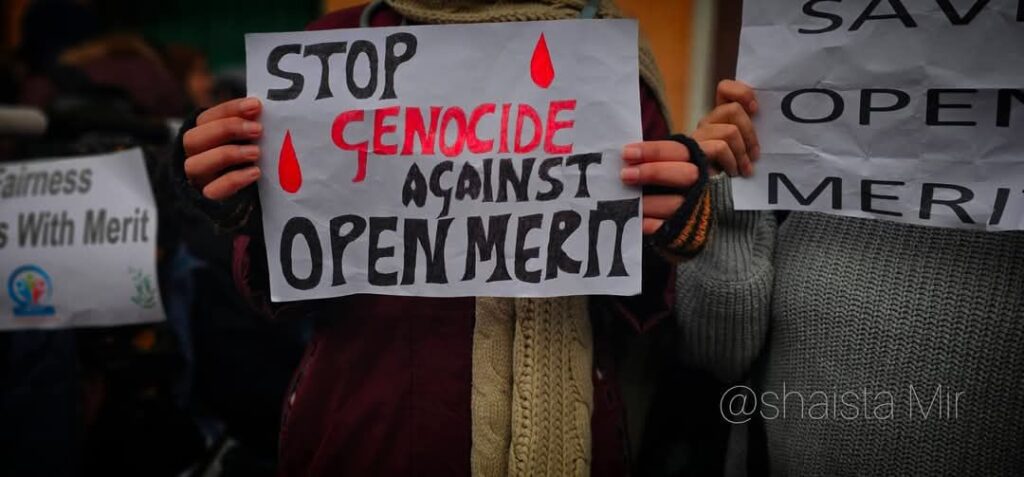

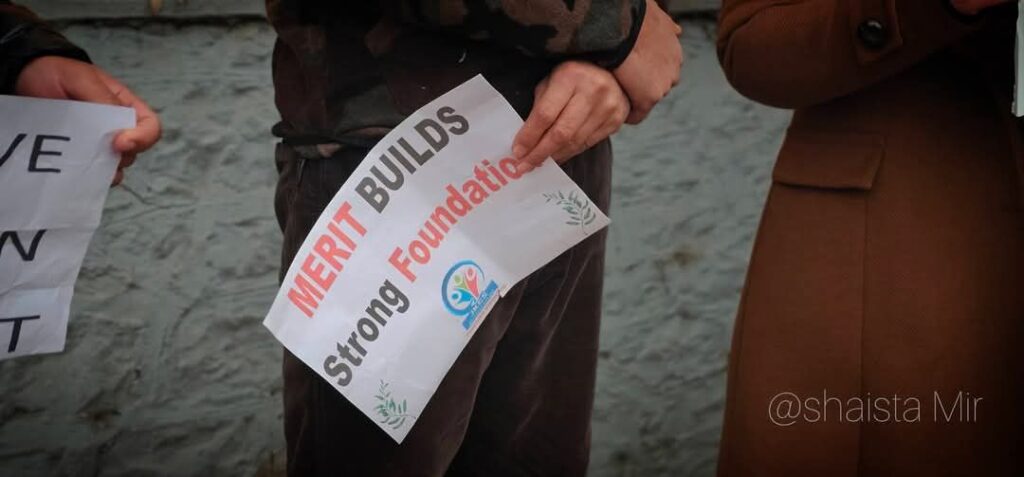
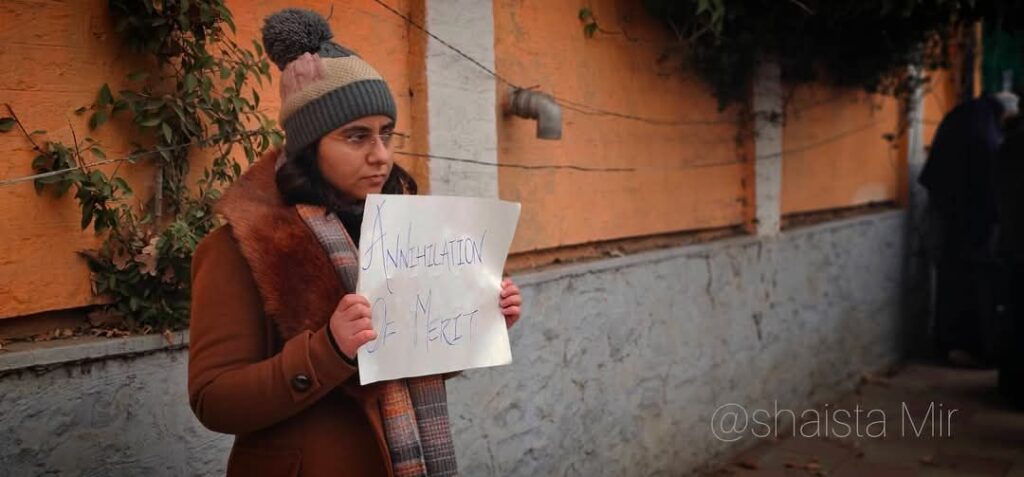
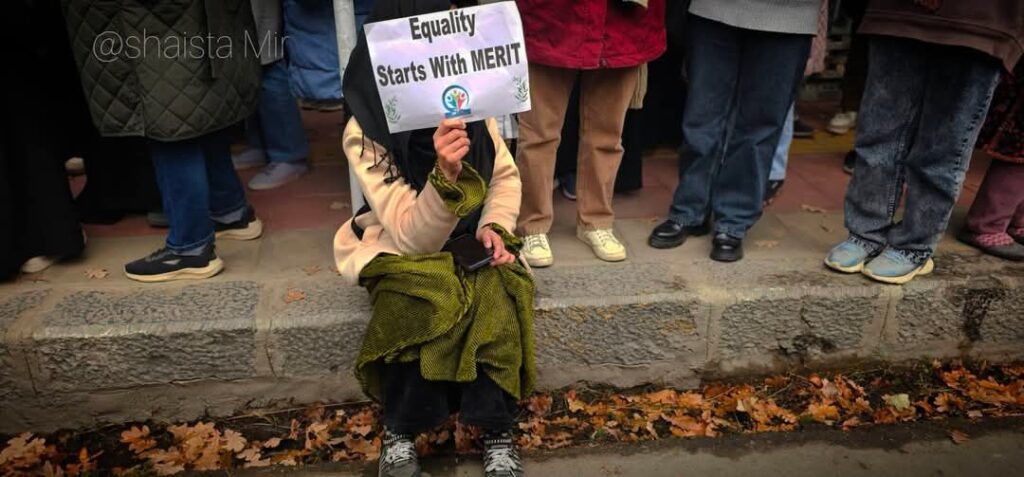
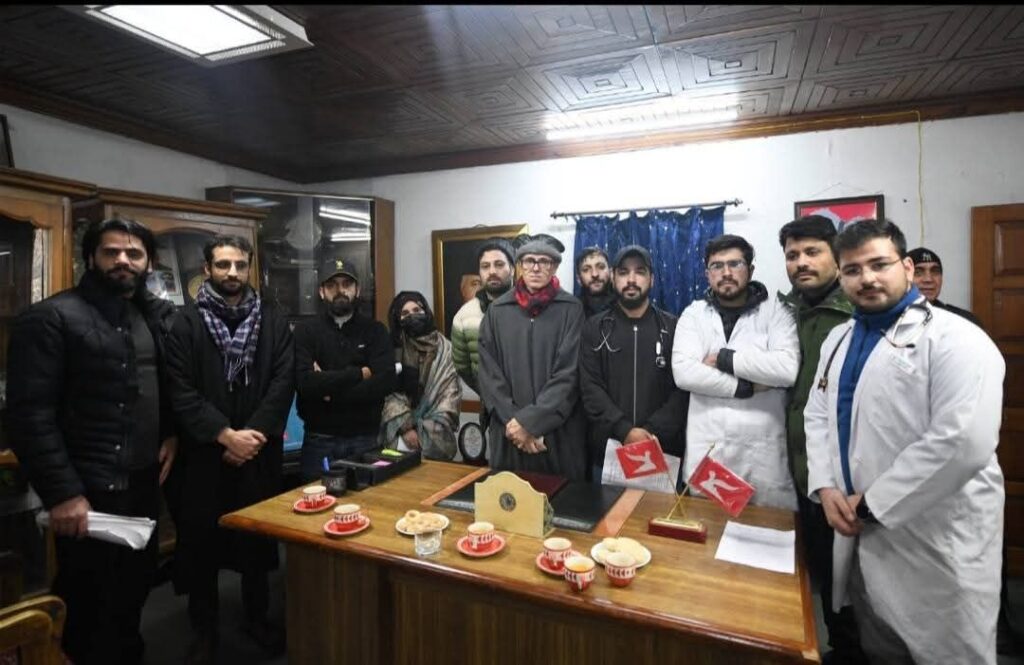
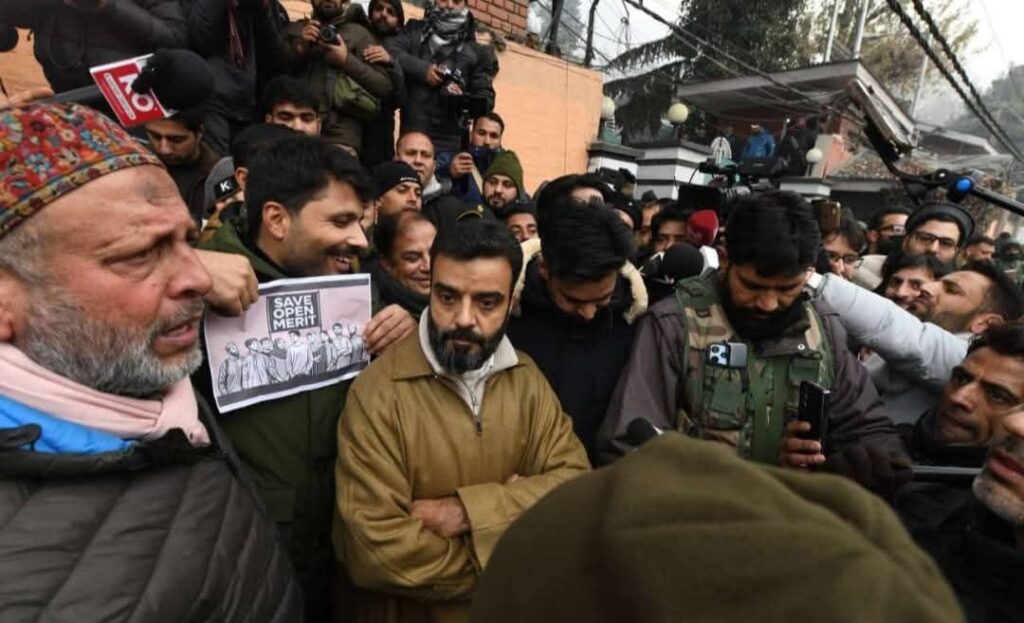
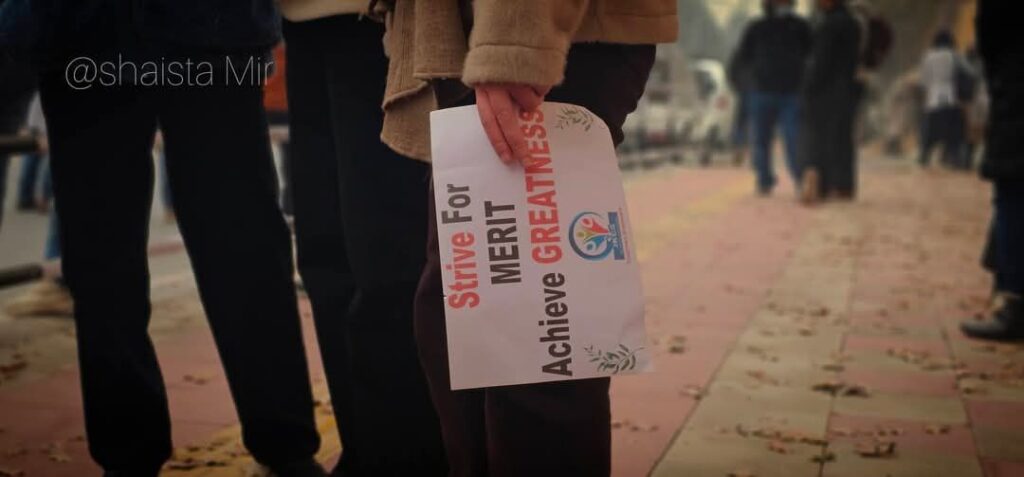
The existing reservation framework, introduced earlier in 2024 by the Lt. Governor-led administration, amended the Jammu and Kashmir reservation rules. It reduced the percentage of government recruitment posts for open merit candidates from 57% to 33% and for those categorized as ‘resident of backward area (RBA)’ from 20% to 10%. Conversely, it increased reservations for scheduled tribes (ST) from 10% to 20%, social backward castes from 2% to 8%, and those living near the Line of Actual Control (ALC) and the physically challenged (PHC) from 3% to 4%. New categories were also added: children of defense personnel (3%), children of police personnel (1%), and candidates with sports achievements (2%).
Addressing the protesters, Ruhullah emphasized the need for quotas to be rationalized according to the proportion of each group in the population, ensuring justice for all sections of society. He stated, “We are not against reservation for any sections of society—which need handholding. We want justice for everyone and not just for a particular section.”
The protest garnered support from various political figures, including People’s Democratic Party (PDP) MLA Waheed ur Rehman Para and Awami Ittehad Party (AIP) representatives. Separatist leader Mirwaiz Umar Farooq also backed the demand for a fair reservation policy, expressing his support on social media.
In response to the protest, Chief Minister Omar Abdullah referenced Rudyard Kipling’s poem “If—” on social media, suggesting the importance of patience and self-trust amid criticism.
The Jammu and Kashmir government has formed a sub-committee to review the reservation policy, considering the growing demand from open category aspirants to reassess the current system. The sub-committee is expected to submit its report within six months.
Critics, such as Jammu & Kashmir Apni Party president Syed Mohammad Altaf Bukhari, have labeled Ruhullah’s protest as “political gimmickry,” questioning the approach of protesting against one’s own party leadership.